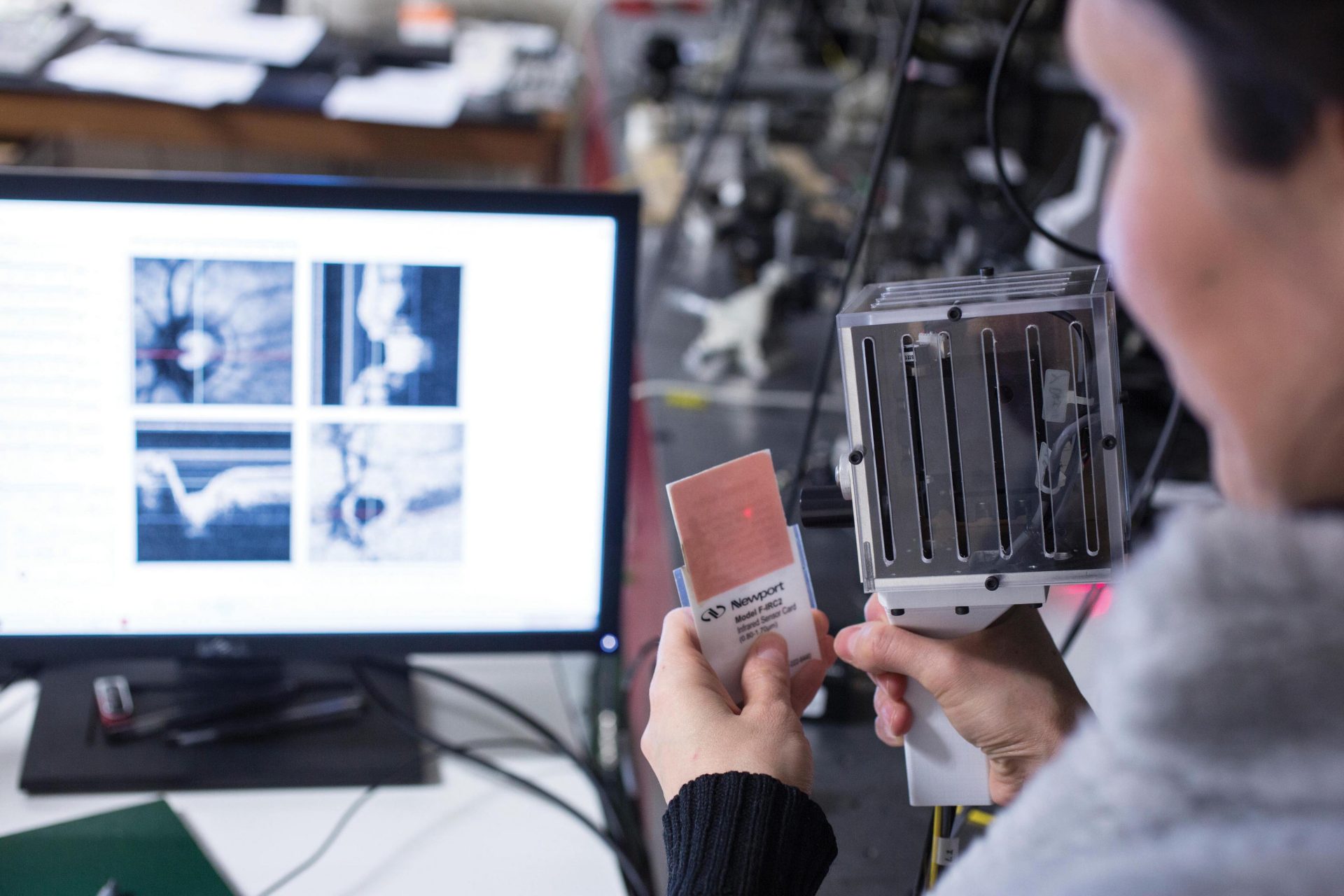
This project is available for students starting in September 2022 and is suitable for a 1-year MSc in Physics. The project does not currently have funding attached, students must be able to fund the fees and their living costs either through their own funds or a scholarship. Current information on fees is available here.
Machine learning/AI is currently seeing explosive growth in its range of applications. Spectroscopy and hyperspectral imaging are a particularly good example of where machine learning is essential to make sense of huge datasets, allowing samples to be classified based on their spectral signature. A downside is that all the spectral data first has to be acquired and digitised, which in many applications is the bottleneck which limits speed and throughput. In this masters project you will investigate an all-optical implementation of machine learning for binary classification in spectroscopy, using a digital micromirror device (DMD). Rather than having to digitise entire spectra or hyperspectral images, an optical processor will perform the classification, leaving only the processor’s ‘decision’ to be digitised.
The project will involve a mix of practical work in the optics lab and computational work in Matlab or Python. It would therefore suit graduates with a background in engineering, physics, computing or a related subject. There is no deadline for the project – applicants will be assessed on a rolling basis – although please note any separate deadlines for scholarships or funding. The candidates must be in place in September 2022. For further information or informal enquiries, please contact Dr Michael Hughes (m.r.hughes@kent.ac.uk).